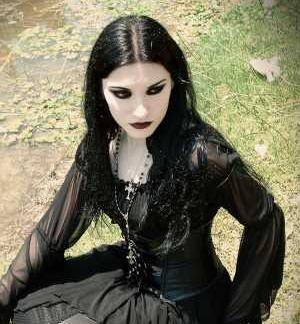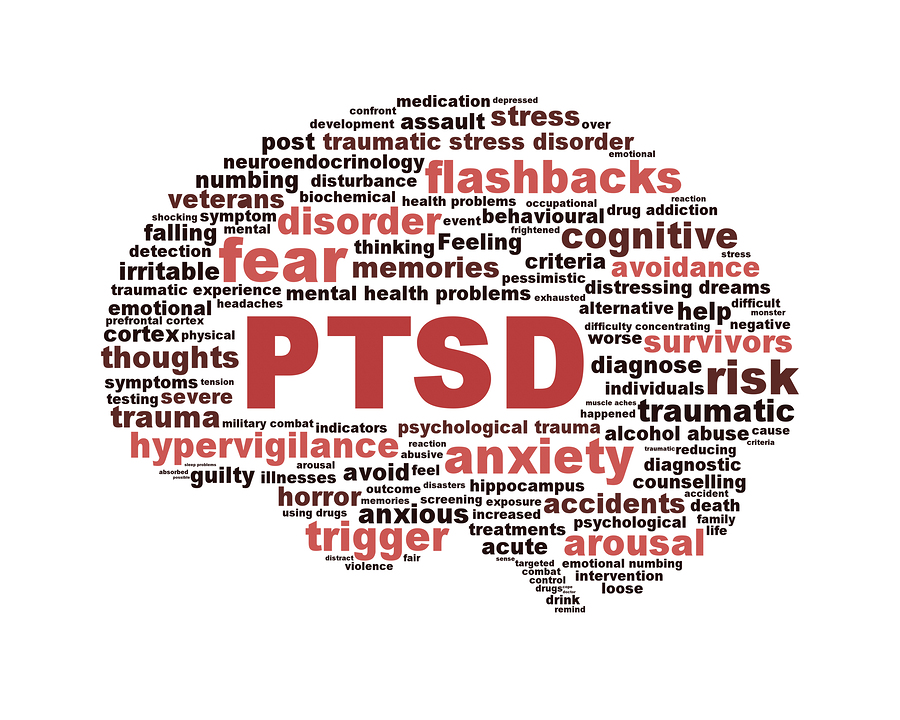I have posttraumatic stress disorder comorbid with major depressive disorder. Comorbid basically means existing simultaneously, but it’s such an awful word, I feel like I have to use it or I’m missing out on an opportunity to be intentionally goth. Would you care to comorbid over biscuits and Sisters of Mercy?

Image from theorderofthedragon.com
I got my PTSD in childhood. What fun!
Except not fun at all. The very opposite of fun is what causes PTSD. My opposite of fun involved a sadistic pedophile who liked to bind and gag me.
I didn’t know I had PTSD for a long time. This was partly because it didn’t really exist as a proper disorder until it was added to the DSM in 1980, and even then, psychiatric professionals were slow to define it as such when encountered in the wild. PTSD was mainly known as “shellshock” or “suck it up, sissy” before that.
The interesting thing about PTSD is that there are different kinds. People with the same diagnosis have their mental disorders manifest in different ways. There are basically four varieties of PTSD symptoms. From the US Government:
-
Re-experiencing symptoms
Memories of the traumatic event can come back at any time. You may feel the same fear and horror you did when the event took place. For example:
- You may have nightmares.
- You may feel like you are going through the event again. This is called a flashback.
- You may see, hear, or smell something that causes you to relive the event. This is called a trigger. News reports, seeing an accident, or hearing a car backfire are examples of triggers.
-
Avoidance symptoms
You may try to avoid situations or people that trigger memories of the traumatic event. You may even avoid talking or thinking about the event. For example:
- You may avoid crowds, because they feel dangerous.
- You may avoid driving if you were in a car accident or if your military convoy was bombed.
- If you were in an earthquake, you may avoid watching movies about earthquakes.
- You may keep very busy or avoid seeking help because it keeps you from having to think or talk about the event.
-
Numbing symptoms
The way you think about yourself and others changes because of the trauma. This symptom has many aspects, including the following:
- You may not have positive or loving feelings toward other people and may stay away from relationships.
- You may forget about parts of the traumatic event or not be able to talk about them.
- You may think the world is completely dangerous, and no one can be trusted.
-
Hyperarousal symptoms
Feeling keyed up (also called hyperarousal). You may be jittery, or always alert and on the lookout for danger. You might suddenly become angry or irritable. This is known as hyperarousal. For example:
- You may have a hard time sleeping.
- You may have trouble concentrating.
- You may be startled by a loud noise or surprise.
- You might want to have your back to a wall in a restaurant or waiting room.
Extra special happy fun times.
I have textbook hyperarousal symptoms of PTSD. I have a short fuse. I’m easily startled, easily triggered, and easy to provoke. I am ridiculously aware of my surroundings. If someone does manage to sneak into my vicinity unnoticed, I will jump like a startled cat. I have difficulty sleeping. I’m constantly tired and have trouble concentrating. PTSD is exhausting.
I am not entirely numb and I don’t re-experience my trauma over and over again. I can only imagine how horrible that must be. Re-experiencing the thing that put you in the mess in the first place must be absolute hell. Being numb to everything doesn’t seem like a tea party with kittens and Sisters Of Mercy either.
I’d rather not have any of those symptoms, but nobody with PTSD would choose to have it. Out of the basic symptom groups, I’ll take my hyperarousal symptoms over re-experiencing symptoms any day. I’ll take my panic attacks, sleeplessness and irritability, and not complain (well, not complain too terribly much. Who am I kidding? I’ll complain no matter what.).
If you have PTSD, what’s yours like? I’m just curious to see how the other shoe fits.







